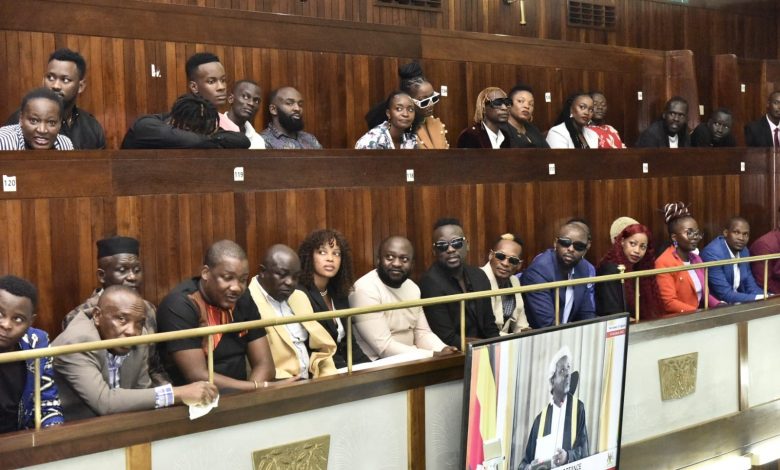Why funding the music industry is not a worth discussion
But for the musicians to think they are owed because they entertain the world and provide employment. Etc, is just to push some hogwash that has got to be flashed down the toilet.

Since the Covid-19 lockdown, there has been a lot of talk about support to the arts and creative industry. As heard in the song composed by Fefe busi “Gulu” a group of musicians took a pilgrimage to Gulu to meet Gen Salim Saleh about being compensated for losses.
Since then there has been a lot of news and arguments about musicians’ associations and federations and all sorts of “tions” for musicians to “get paid”.
The riding theme is that “the industry” needs financial injection because it contributes to GDP. Well one can’t fault that. There is also a running argument that the industry offers employment to several people involved. The example of a musical event, often used, supposes that several people involved, from setting up the venue, advertising the event and providing modalities and welfare at the event are all employment opportunities, even if for a day or two. Bottom line it puts money in pockets and saves people from bad street habits.
Here is the question, what help do they want: We heard on one front that they need the copy right law operationalised as soon as possible so they can get protection for their creative products and probably earn more from their intellectual properties. So how does the copyrights law work? You make your music it becomes your product which you must now earn from. And how do you earn from it: 1) sell it 2) perform it 3) get royalties from it.
But to earn for you it must be promoted to a wider audience to attract need for it from an interested audience. But it must first be worth it. So, every artist must find his own way of promoting their music.
Hence a promoter Back to the support. Musicians insist that Government must consider injecting resources into their industry. When URA became a bit tough on collecting taxes from musical events and musicians they were all up in arms but interestingly insist the government should find tax payers money to “support “their industry. If not Hypocrisy then I don’t know what it is.
Now let’s break it down, in as much as the copyright law is enacted and a monitoring structure set up for it to be implemented so they can benefit from their intellectual properties, then that is a good argument. But for the musicians to think they are owed because they entertain the world and provide employment etc, is just to push some hogwash that has got to be flashed down the toilet.
Why: Like any other money-making venture, Music and everything else around it is a business. The producer and studio get paid to make the song; the artist gets to sell his song to a promoter and gets paid. A promoter organizes an event to promote the song and pays all artists to perform that day. The stage equipment Is rented from someone who gets paid, the music guy, sound guy etc are all paid. The food and drinks sellers pay the event owner to sell their products to the revelers who buy entry tickets. Everybody leaves happy after investing. The musician invests in his music, the promoter invests in his event, we invest in entertaining ourselves. Reciprocal business.
Therefore, music industry is a money-making business and only the sharp ones should invest in it. URA should sharpen how to collect taxes from this talent driven business and look at every business that benefits from music and tax them pay as you earn. URA should park a digital bank at each event and ensure every beneficiary beyond a certain threshold is taxed appropriately.
An argument that has rotated a bit is to the effect that the musicians will manage their association or federation better. News flash; management is a science not an entitlement or a right. Administrating over an amorphous structure requires a different set of skills that includes spiting rhymes on a mic, or mixing beats and creating rhythm in the chop shop, but a skill set mixed with leadership, people management, strategic thinking and business mind to identify how spitting rhymes and the chop shop can benefit the individuals who put in the work.
There should be no way, the government should be funding the music industry as a singular. If at all they should list as sole businesses and line up like all struggling businesses. The beauty with creative arts is every artist is a power of his or her own. It is your individual works and personal business acumen that works for you. Just work on your talent and personal structure to be better, earn more and invest your earning into prospects.
But government funding no way! If Government wishes to start financial coffers to boost businesses, it should start with the existing businesses that are already structured to be taxed and monitored so it can recover its monies. The music industry is basically a thousand units of individual businesses with attitude hoping to end up with one right correct tune. That may not be practical or even feasible.







